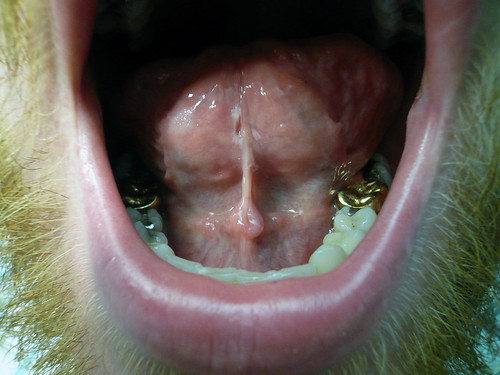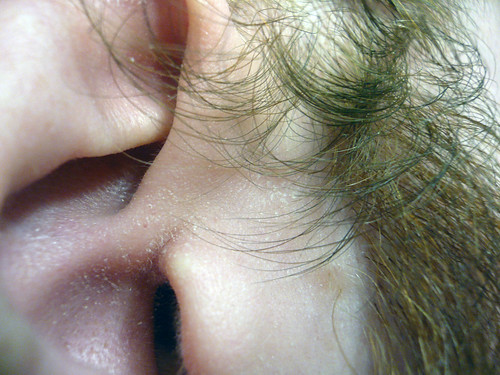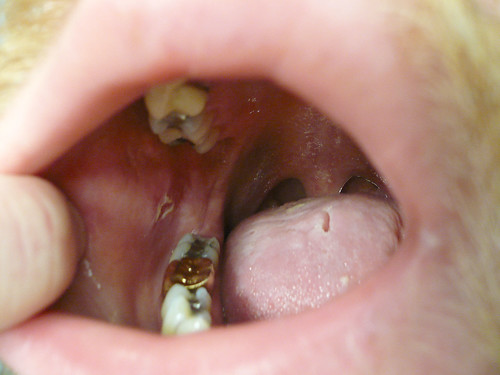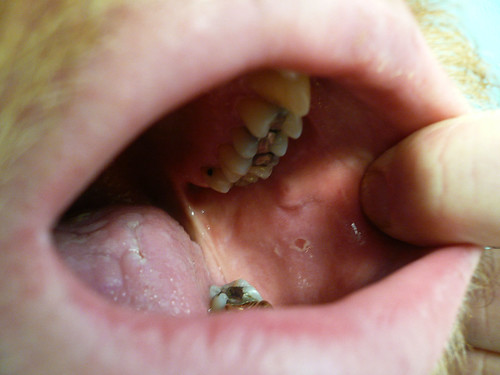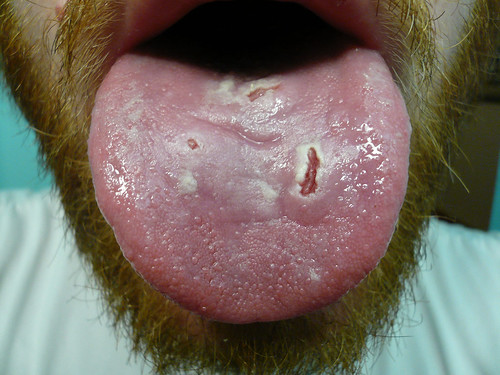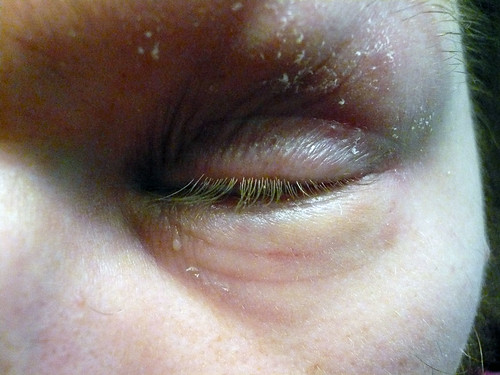The Interferon continues to kick my ass
Tag: side effects
Back from the road
36 weeks done. I have 16 weeks left. 70% done. My mom is coming tmrw, which will distract me for a week. I’ll be down to 15, the last 3 or 4 of which will be in Portland. In my rationalization and fantasy, that makes it only 12 weeks left of solo, non-distracted injection. Of course this is a fantasy: I’m still months away, but it feels closer. I think that after week 39 (75%) I will feel a solid “last lap” feeling.
I was on the road for the last week, giving lectures with my studio mates. I did a lot better than the last time I attempted this in November. That said, this will be the last time I fly before I go home to Portland in July to finish my treatment. I did really well, but it was hard enough.
Some things have changed over the last few weeks that I have neglected to report. Most importantly, I’ve gone off the Atarax, which was controlling my dysesthesia, but also making me stoned, irritable, and sans-libido. I was in at my dermatologists, and he said “well, if you really think it is the Atarax, why not stop for a few days; you should feel the effects immediately — its not something that builds up in your blood stream. If the dysesthesia is too strong, you go back on it.”
Amazingly, I was fine. The three months on the Atarax had got me adjusted to knowing when and where i was most likely to experience an attack, and to avoid those situations, and controlling the reaction through meditation when it was unavoidable. So I have had to concentrate harder at times, but I have been rewarded with a better mood, a lot more energy, and a libido that is still suppressed (from the IFN) but a lot stronger than before.
I had several doctors appointments about 4 weeks ago. My CT scans are clean. My Oncologist continues to tell me I am doing better than most any of his patients. It is small relief, considering this experience feels so bad, but I wonder about those patients who are doing ‘worse’ than most of his patients.
The day I was in I had to wait 4.5 hours to see the doctor. I’ve gotten really good at being patient in doctors offices. I was told the doctor was running late when I signed in, and after about 45 minutes I checked in to see whether we were talking a few more minutes, or a few more hours. Mostly I wanted to know whether to pull out the laptop and start working. I was told that it was most definitely a laptop day.
The way the nurse phrased it was “There are some very sick patients here today.” She said it under her breath, so as to not let it spread too far beyond our little micro-conversation-sphere. I found out that one patient had to be admitted before I arrived at 10am, and several other patients were admitted during the 4.5 hours I was waiting. Apparently the doctor was away at a conference, and these older patients didn’t go to the ER when they should have, as their skin grafts became infected, or they got really sick with a pneumonia, or what have you.
Knowing that there are patients in the office who are likely dying gave me an incredible patience with waiting. I could have sat there for the whole day, patient and content, meditating on the wellbeing of those admitted patients, and grateful that I am strong enough to wait with patience.
One of the interesting things the doctor told me is that along with the reduction in physical changes that comes with month 10 (i’m still in the physical changes zone, but last month was much worse) comes an increase in anxiety and psychological effects. So months 6-9 are the hardest physically (all kinds of body falling apart.) But months 10-12 feature an crescendo of anxiety that doesn’t get better until after the last injection, and then, two or three days later, it disappears. Invariably, the anxiety vanishes within a week of the last injection.
I doubt that all the physical symptoms will go away quite so fast (my fingernails continue to disintegrate, i have Reiter’s lesions all over my legs) but it is nice to know that a good part of the mental stuff will go away fairly quickly.
bloody keys
Skin Flakes
Mouth Sores
These are the lesions on the sides of my mouth. I have one on each side. Right about where my teeth meet. I also have two on my tongue. All of these are at least 1 cm in length. Raw. And painful.
As if the nausea wasn’t hard enough, it actually hurts badly to put anything in my mouth. Even water hurts.
A lesson I am trying so hard to learn
Addwag writes via email:
PS i just read your blog-
why in gods name are you emailing me about my stupid questions when you feel terrible? although I appreciate it, please next time, it can wait, I promise.. send me an email that says something like (I will write it so you can just paste the reply in)
“I feel like shit today and I shouldn’t be on my computer so ping me another day when I don’t feel like I am dying of a rare disease you get from monkeys in the congo”
sorry- but us overachievers have got to learn to force ourselves to stop working sometimes.. xoo
if there is anything I can do for 2,000 miles away let me know, promise?
new tongue lesions
Dermatologist versus Oncologist
My Oncologist freaked out on me when he realized I was using Taclonex, a topical steroid. I was given it by my dermatologist to treat what I know know was Reiter’s Syndrome. I didn’t realize any of it was a problem. My oncologist freaked out so much that I went into a full dysesthesia attack. Fun.
So I stopped the Taclonex, even though it was working on the Reiter’s Syndrome.
Today, I told my dermatologist this story, and he pooh-pooh’ed the concerns of the oncologist, citing several studies that showed that topical steriods do not make it into the bloodstream. And at the same time was a touch defensive, trying to reassure me that he would never have give me something if he was not 100% confident it was safe.
So it doesn’t make it through my skin into my bloodstream… but I had *skin cancer*. Or am I falsely relating the surface with the site of the original cancer. When the real risk are those rogue cells floating in my bloodstream?
So whose instructions do I follow? How much pain can I take from my fingers? How much of the pain is the infections (which I go a prescription for)? With the infections under control, will I get some of my fine motor skills back? (I’ve been having trouble picking up pills, keys, gummi bears, and other small objects b/c the tips of my fingers are so sore and my finger nails are mostly gone. Also, opening the magnetic clasp on my computer is a comic affair: I find some spoon, or USB cable, or the corner of my iPod Touch, slip it in, and lift it up two or three inches, and let gravity pull the bottom half away from the top half (it usually lands on the table with a thud)
So whose instructions do I follow?
Reiter’s Syndrome
I went to the dermatologist today. Everything checked out fine. All my moles are (still) normal. All the new lesions are also normal, and have a name: Reiter’s Syndrome. And when it shows up the lesions are called psoriasis. This includes the big lesions on my tongue. A quick google search reveals an academic paper linking Reiter’s Syndrome to IFN (that costs money, and arrives by mail?), and a Reagan era NYTimes article discussing AIDS and Reiter’s syndrome. It is unclear to me how much of this science is still accurate (it was 1987, and they didn’t really know that much about HIV/AIDS) but they argue that HIV suppresses one part of the immune system and allows the other part (the Interferons) to flourish:
”AIDS patients have high levels of interferon and it is known that when we give interferon to patients with cancer they develop psoriasis,” Dr. Winchester said. ”It is possible that high levels of interferon may induce both psoriasis and Reiter’s syndrome.”
The presence of Interferon, whether as a result of HIV/AIDS or a result of Interferon treatment, results in a psoriasis and Reiter’s syndrome.
I don’t have HIV/AIDS, but I do have one of the most common side effects of the disease, because the two share the same mechanism – interferon.

